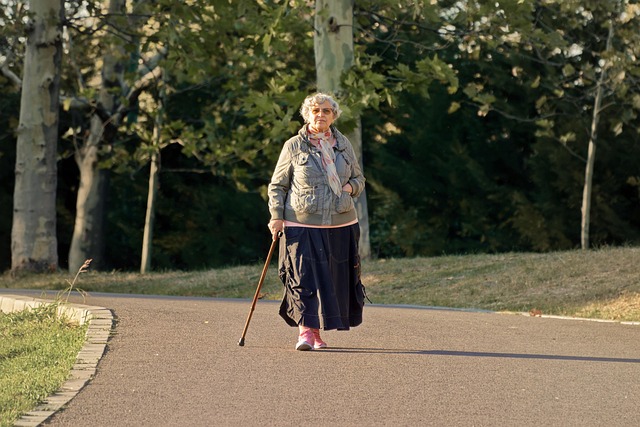Oregon law regulates grandparent visitation rights, prioritizing children's best interests while acknowledging grandparents' significant role. The process involves court orders based on criteria like relationship strength, past interactions, and potential impact on the child. Parents play a crucial role in facilitating these visits, while legal professionals and community support networks aid grandparents navigating the legal system.
In Oregon, grandparent visitation rights are a crucial aspect of family law, allowing meaningful connections between grandparents and their grandchildren. This overview explores the state’s legal framework governing grandparent visitation, focusing on key areas such as obtaining and enforcing visitation orders, factors influencing court decisions, and the roles of both parents and grandparents in fostering these visits. Understanding these dynamics is essential for ensuring legal protections and support for grandparents seeking quality time with their grandchildren.
- Grandparent Rights in Oregon: Legal Framework
- Visitation Orders: Obtaining and Enforcing
- Factors Influencing Visitation Decisions
- Common Challenges: Grandparents' Perspective
- Parents' Role in Facilitating Visits
- Resources and Support for Grandparents
Grandparent Rights in Oregon: Legal Framework

In Oregon, grandparent rights regarding visitation are governed by specific laws designed to balance the interests of children, parents, and grandparents. The state recognizes the important role that grandparents can play in a child’s life and has established a legal framework to protect these relationships. According to Oregon law, grandparents have a legitimate interest in visiting with their grandchildren and can seek court-ordered visitation if certain conditions are met.
The legal framework for grandparent visitation starts with ORS 109.725, which outlines the criteria for granting visitation rights. The court considers factors such as the child’s well-being, the parent’s relationship with the grandchild, and the grandparent’s relationship with the family. If the court finds it in the best interest of the child to allow visitation, it will issue an order specifying the terms and conditions under which grandparental visitation may occur. This process ensures that decisions regarding grandparent rights are made in the best interests of the child while also recognizing the significant role grandparents can play in their grandchildren’s lives.
Visitation Orders: Obtaining and Enforcing

Grandparent visitation rights are governed by specific laws in Oregon, offering a structured framework for establishing and maintaining meaningful connections between grandchildren and their extended family. When seeking to obtain or enforce legal visitation with grandchildren, it’s essential to understand the process.
A visitation order is a legally binding document that outlines the terms and conditions for grandparent-grandchild interactions. This can be acquired through a court proceeding where a judge reviews the circumstances and makes a determination based on the best interests of the child. Once obtained, these orders are enforceable in Oregon, ensuring regular and structured visits between grandparents and grandchildren. Grandparents or custodial parents who fail to adhere to the established visitation schedule may face legal consequences, emphasizing the importance of compliance for all parties involved.
Factors Influencing Visitation Decisions

Oregon courts consider several factors when determining grandparent visitation rights, focusing on what is in the best interest of the child. These include the existing relationship between the grandchild and grandparent, the amount of time they have spent together in the past, and the quality of that relationship. The court also looks at the parents’ views on grandparent visitation, any potential impact on the child’s well-being or stability, and whether there are any extenuating circumstances like distance or scheduling conflicts.
Additionally, Oregon law recognizes the significant role grandparents can play in a child’s life, especially when the parent is absent or unable to provide care. Factors such as grandparent’s age, health, and ability to offer stable care, as well as their financial resources, might also be taken into consideration. The court aims to balance the rights of parents and grandparents while prioritizing the child’s overall happiness and development.
Common Challenges: Grandparents' Perspective

Grandparents often face challenges when pursuing legal visitation rights, particularly if they live outside the state or have no direct relationship with the parents and grandchild. Common obstacles include proving a significant connection to the child and demonstrating that their involvement is in the best interest of the grandkid. The court will consider various factors, such as the quality and frequency of interactions, the stability of the current living environment, and any barriers to visitation.
Grandparents may also encounter resistance from parents who are reluctant to share custody, especially if they perceive a potential threat to their parental decisions or lifestyle. This can lead to protracted legal battles, where grandparents must navigate complex legal procedures and emotional challenges. Effective legal representation and a strong showing of the grandparent-child bond are crucial in navigating these hurdles and securing favorable outcomes in grandparent visitation cases.
Parents' Role in Facilitating Visits

In Oregon, when it comes to legal visitation for grandparents, parents play a crucial role in facilitating healthy and meaningful interactions between their children and grandchildren. This includes respecting and honoring grandparent-grandchild relationships while also prioritizing the child’s best interests. Parents are expected to foster an environment that encourages regular visits, ensuring these meetings are convenient and accessible for both parties.
They can do this by maintaining open communication with their children and setting a positive example, demonstrating the importance of family connections. Additionally, parents can assist in scheduling visits, providing transportation if needed, and addressing any concerns or conflicts that may arise. By actively participating in these processes, parents contribute significantly to ensuring grandparent visitation rights are upheld while also fostering a nurturing relationship between generations.
Resources and Support for Grandparents

Grandparents seeking legal visitation rights in Oregon can find a range of resources and support systems to assist them. Legal professionals specializing in family law are an essential first step, offering guidance tailored to Oregon’s grandparent visitation statutes. These experts can help navigate the legal process, ensuring grandparents understand their rights and options.
Oregon also boasts various community organizations dedicated to supporting grandparents’ rights. These groups provide networking opportunities, share practical advice, and offer emotional support. Online forums and social media communities specific to grandparent visitation further equip members with knowledge and connect them with others facing similar challenges, fostering a sense of camaraderie during what can be an intricate legal journey.
